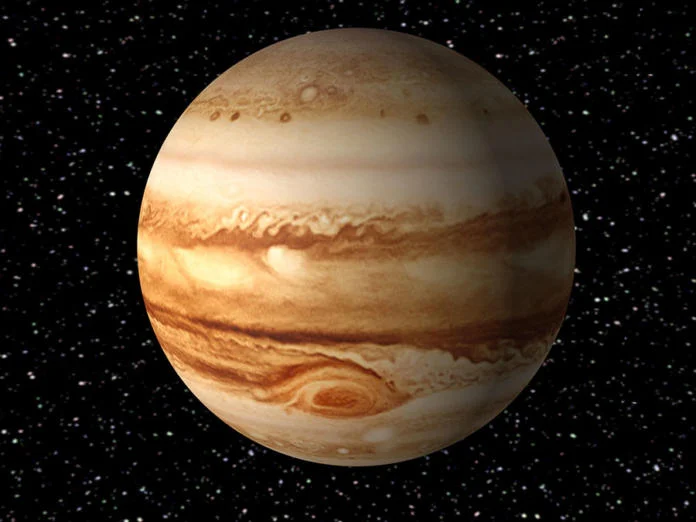This unprecedented year will end with a special astronomical event last witnessed in the Middle Ages. On December 21, the closest great conjunction of Jupiter and Saturn in 800 years will occur, making it appear as if they are almost touching in the sky.
A conjunction is when two objects appear close to each other in the sky. Astronomers also describe a conjunction as the moment of minimum separation between two objects as viewed from the Earth.
Conjunctions involving the Moon happen frequently as it circles the Earth once a month and passes each of the planets in the sky.
However, conjunctions involving Jupiter and Saturn are quite rare because they are much further away and thus move more slowly. To contextualise their speed, it takes the Earth one year to orbit the Sun while Jupiter takes 12 years and Saturn 30 years to make the same orbit. Due to this long orbit, these two planets will only meet in the sky once every 20 years, which is called a great conjunction.
Jupiter has been inching nearer and nearer to Saturn since September, and will come closest to the planet on December 21. The planets will be separated by one-fifth of the diameter of a full moon, and may appear as a single bright “star.”
“Alignments between these two planets are rather rare, occurring once every 20 years or so, but this conjunction is exceptionally rare because of how close the planets will appear to one another,” said Rice University astronomer Patrick Hartigan.
“You’d have to go all the way back to just before dawn on March 4, 1226, to see a closer alignment between these objects visible in the night sky.”
After this year, the next great conjunctions will likely occur on November 2, 2040 and April 7, 2060, reports Time and Date. However, the planets will be separated by a minimum of 1.1 degrees, which will make them 11 times farther apart than they will be on December 21, 2020.
The great conjunction of these two planets will be visible across the world, although the quality of visibility will differ depending on the night sky. In Cape Town, it should be visible at 8.20pm, according to Time and Date.
Those of us in the Southern hemisphere are advised to look toward the west to witness this astronomical event. Jupiter will shine brighter than Saturn.
It seems December is a special month for the heavens. A partial solar eclipse, which is when the Moon comes between the Sun and Earth but the Moon only partially covers the Sun’s disk, will be visible on December 14.
According to Time and Date, the partial solar eclipse will begin on December 14 at 6.51pm, reach its maximum point at 7.43pm and end at approximately 7.53pm. It will last for a total duration of one hour and one minute.















